As for the Chairman of AMECEA, Bishop Charles Kasonde, the launched guidelines provide an opportunity for the association to take up its place in contributing to the implementation of the stated goals of Laudato Si’.
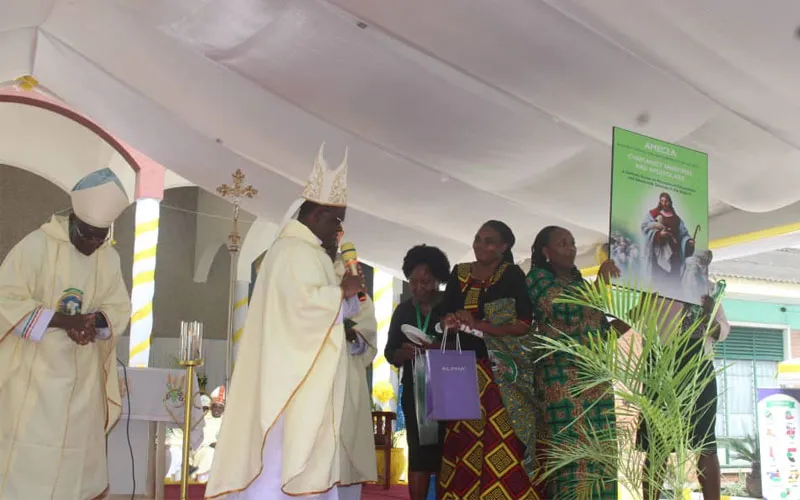 Credit: ACI Africa
Credit: ACI Africa
The guidelines, the Bishop of Solwezi in Zambia who wrote the Preface of the document says, “challenge us to both a prayerful introspection and a committed response towards care for the ecology.”
He says, in reference to the environment guidelines, “They also affirm the already existent best practices while calling others to transition towards the desired standards for making Laudato Si’ alive.”
“The successful implementation of these guidelines will highly depend on the openness of the conferences to domesticate and contextualize them,” Bishop Kasonde says in the Preface.
(Story continues below)
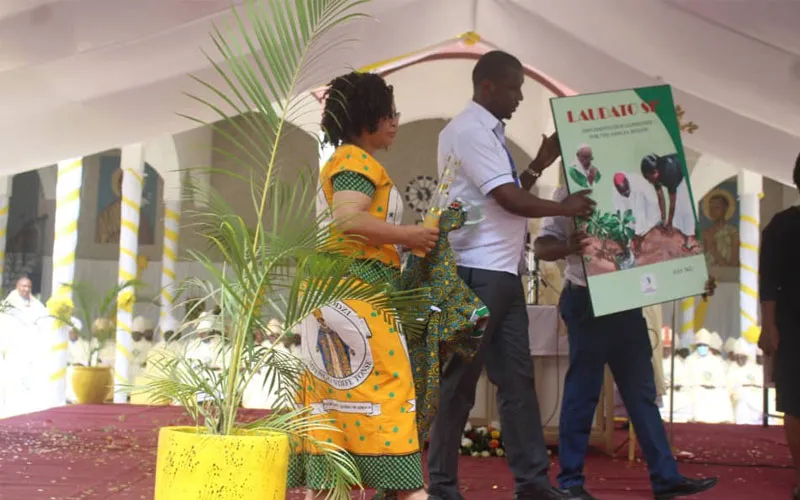 Credit: ACI Africa
Credit: ACI Africa
The AMECEA Chairman who was re-elected for a second four-year mandate adds, “As part of our commitment to implement the Laudato Si’, I urge all my brother Bishops, agents of evangelization and people of good will to take up and implement these guidelines with the enthusiasm they deserve in nurturing our common home.”
Another document, “Chaplaincies Ministries and Apostolates: A Catholic Guide of Provision of Chaplaincy and Apostolate Services in the Region”, was also unveiled as AMECEA Bishops marked the end of their 20th Plenary Assembly in Dar Es Salaam, Tanzania.
The document is divided into three sections, which are further organized into various chapters.
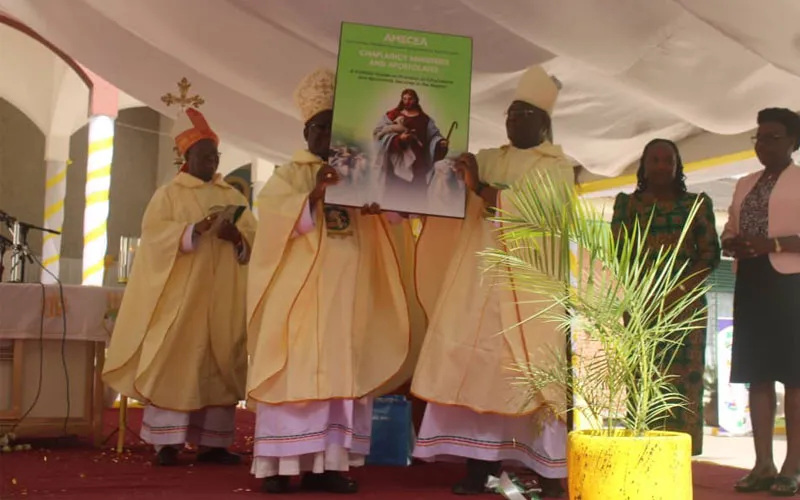 Credit: ACI Africa
Credit: ACI Africa
Section one deals with General Provisions on Chaplaincies, which addresses approaches to chaplaincy services and implementation structures.
Section two deals with chaplaincy ministries, which include military Ordinariate, Chaplaincy to the police, Chaplaincy to the correctional facilities, and Chaplaincy to health institutions.
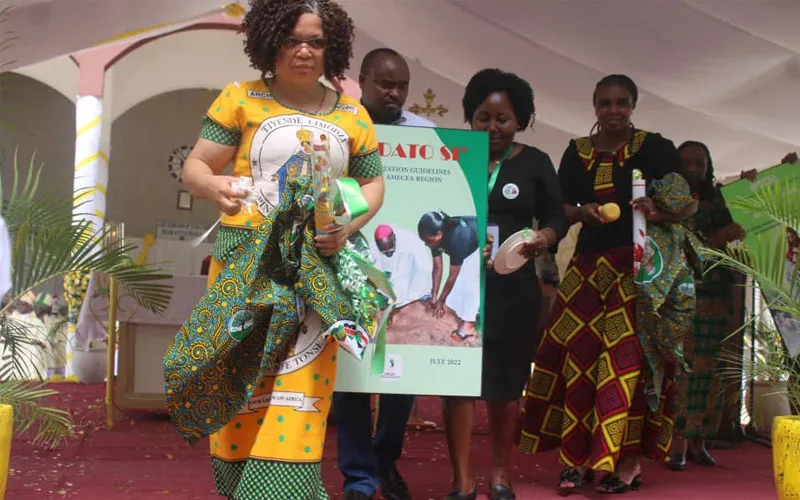 Credit: ACI Africa
Credit: ACI Africa
Others are Chaplaincy to youth and children, Chaplaincy to the judiciary, Chaplaincy to the legislature, Chaplaincy to the presidency, Chaplaincy to the religious and lay missionaries, and Chaplaincy to the migrants and refugees.
The final section deals with apostolates, which include apostolate to the elderly and hospices and apostolate to persons with disabilities and special needs.
Others are apostolate to public transport drivers, motorcycle riders and touts, apostolate of the sea and water bodies, apostolate to virtual congregations, and media houses.
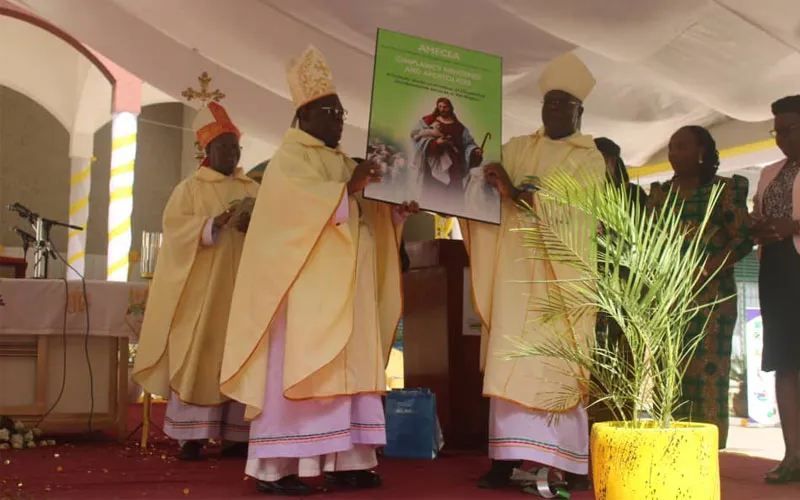 Credit: ACI Africa
Credit: ACI Africa
In his address at the July 17 launch, the Chairman of AMECEA’s department of integral human development, Archbishop Alick Banda of Lusaka Archdiocese said the book is set to serve groups that do not exist in Parish set-ups.
“The book on the Chaplaincy is a fruit of the last plenary in Ethiopia where we deliberated and acknowledged one failure, namely, the failure to touch the hearts of our people, especially those that are not provided for in the Parish set-up,” Bishop Banda said referencing the 19th Plenary Assembly of AMECEA held in Addis Ababa, Ethiopia, in 2018.
“We have come up with this document that is going to help us in meeting the challenges of our people,’ the Zambian Archbishop said, and added, “It is a document to be used across the AMECEA region, to be translated, and to be adopted by various Dioceses as well as institutions that are doing pastoral work.”
Agnes Aineah is a Kenyan journalist with a background in digital and newspaper reporting. She holds a Master of Arts in Digital Journalism from the Aga Khan University, Graduate School of Media and Communications and a Bachelor's Degree in Linguistics, Media and Communications from Kenya's Moi University. Agnes currently serves as a journalist for ACI Africa.
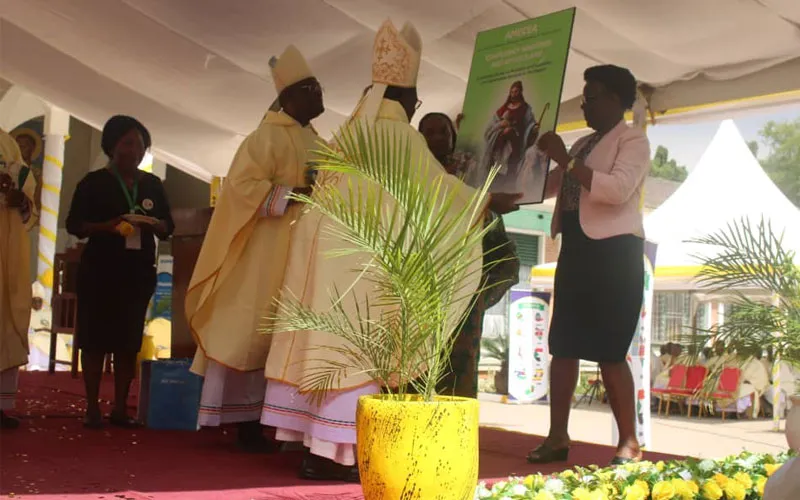 Credit: ACI Africa
Credit: ACI Africa


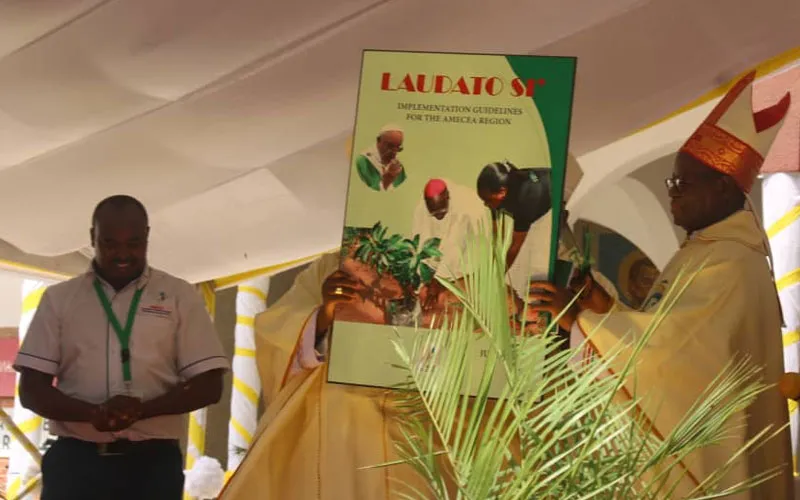
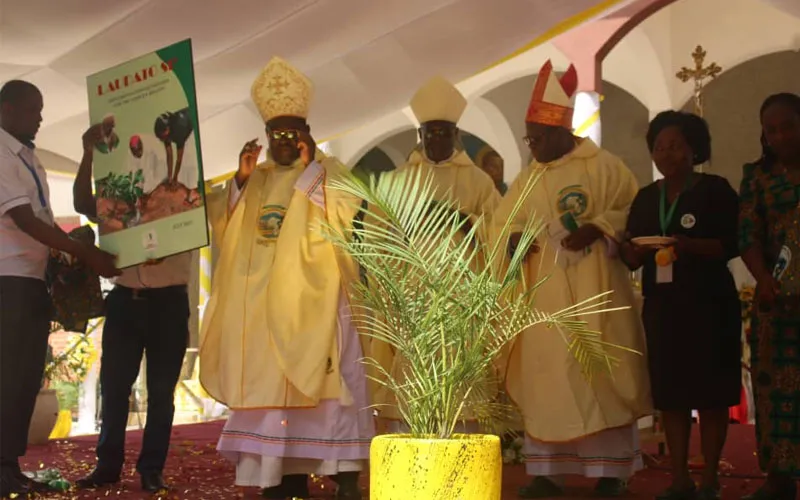 Credit: ACI Africa
Credit: ACI Africa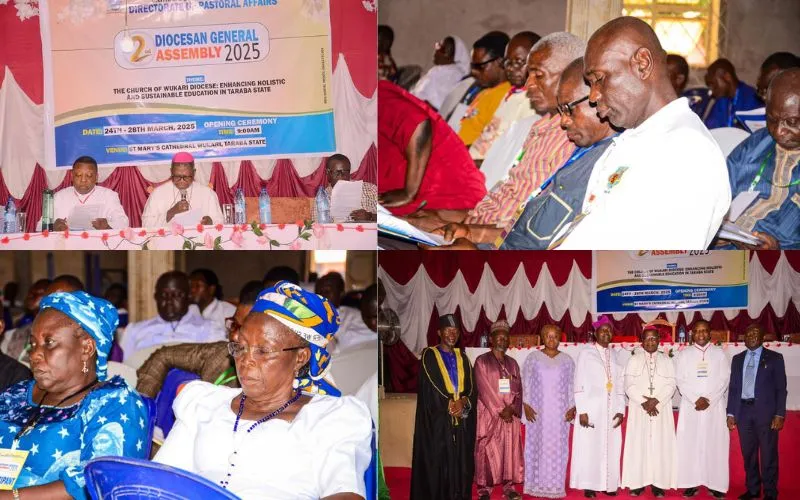
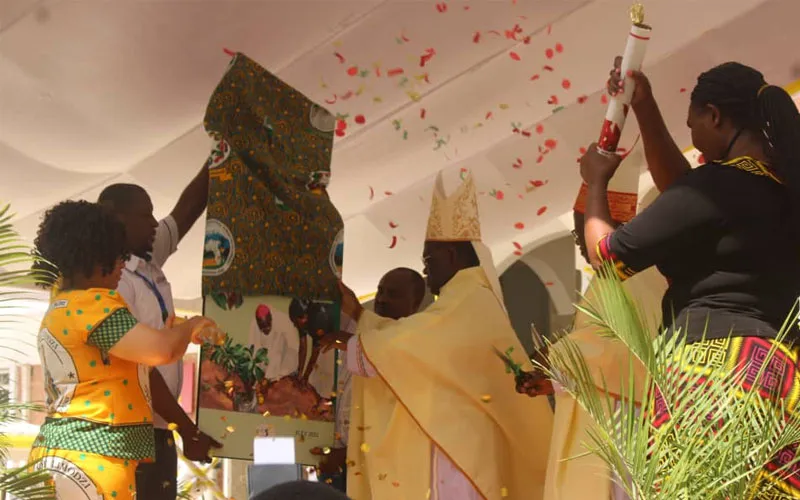 Credit: ACI Africa
Credit: ACI Africa Credit: ACI Africa
Credit: ACI Africa Credit: ACI Africa
Credit: ACI Africa Credit: ACI Africa
Credit: ACI Africa Credit: ACI Africa
Credit: ACI Africa Credit: ACI Africa
Credit: ACI Africa


